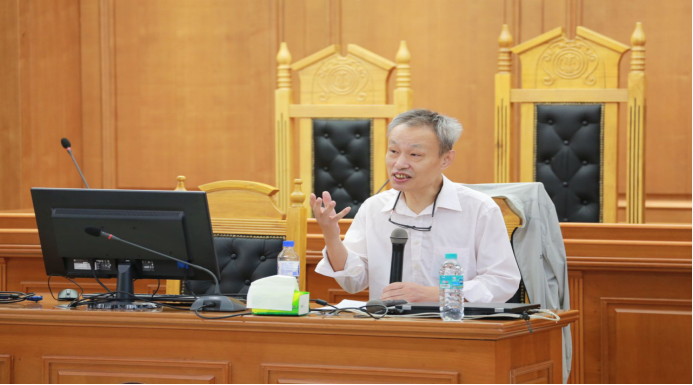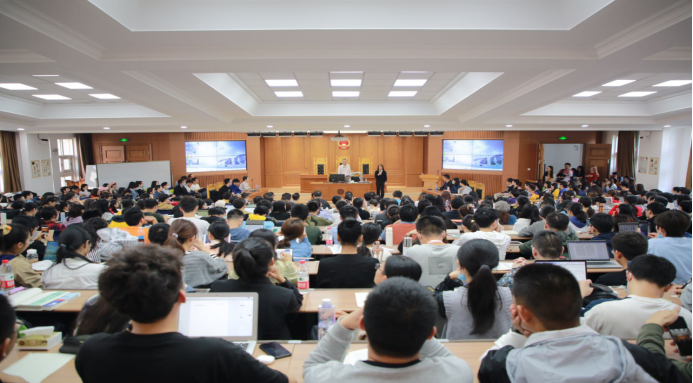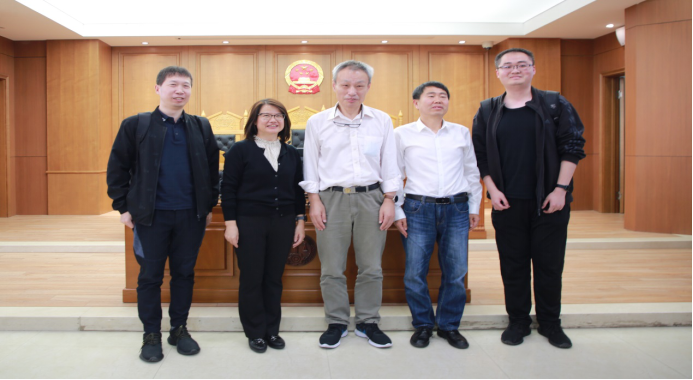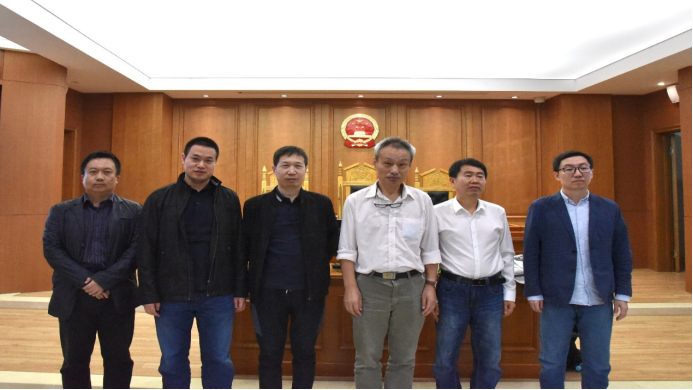Professor Zhu Suli of Peking University Law School was invited to the 289th-290th Lectures of Contemporary Jurists of Jilin University School of Law on September 26. Professor Ren Xirong, deputy Dean of Jilin University School of Law, Professor Li Yongjun, Professor Hou Xuebin, Associate Professor Liu Xiaoping, Associate Professor Miao Yan, Associate Professor Yang Fan, Postdoctoral researcher Meng Rong and students from School of Law participated.

Professor Ren Xirong, Deputy Dean of Jilin University School of Law, presided over the lecture of “Moral Justice, Law and human feelings”. In the lecture, Professor Zhu Suli holds the idea that ancient law is a kind of social order, which includes not only national law, but also moral justice and human feelings. First of all, he analyzed the concepts of moral justice and human feelings. Moral justice is similar to western natural law, involving the fundamental problems of human nature, and is the most important legal principle in society, which is even higher than national law to a great extent. Human feelings is usually affected by the environment and is universal with particularity. Therefore, human feelings are not the feelings of judges, but the feelings under a certain circumstance. Secondly, moral justice and human feelings have special functions. Moral justice and human feelings can not only overcome the rigidity of written law, but also restrict the ancient imperial power to some extents. In modern judicial system, although judges sometimes need to resort to moral justice and human feelings, they may not be explicitly written in the judgments. Thirdly, the authority of the court depends on the cases known to the general public, which are often civil cases and criminal cases related to moral justice and human feelings, rather than technical cases. Therefore, judgment still needs to consider moral justice and human feelings to enhance judicial authority and credibility. Finally, Professor Zhu Suli underlined the significance of moral justice and human feelings in judicial decisions through Yao Jiaxin case, Peng Yu case and Zhang Koukou case.

The other lecture given by Professor Zhu Suli was titled “Family, State and the World as an Institutional Entity”. It was presided over by Professor Li Yongjun. Professor Hou Xuebin, Associate Professor Liu Xiaoping, Associate Professor Miao Yan, Associate Professor Yang Fan and students from School of Law attended.

On the basis of the geographical differences between China and the west, Professor Su stated that it is the geographical factors that influence people’s daily life and modes of production, thus affecting the composition of China’s state system in history. The constitutional problem in history concerns building up families, governing the country and pursing a peaceful world. Professor Zhu Suli approached from the family issue. The imperial power in ancient China does not give orders directly to county-level areas, so the problem of governing the families is mainly a matter for family members themselves. Furthermore, Professor Zhu proposed that the methods to solve relationship between parents and children, siblings and spouses are following the principle of becoming kind parents and filial children, respecting elderly brothers and sisters, and respecting gender differences. In addition, although the imperial power does not directly affect the countryside, the grass-roots labor force and tax revenue is still of great significance. Finally, Professor Zhu Suli took questions raised by the students, such as the localization of the rule of law and issues relevant to jury system.
